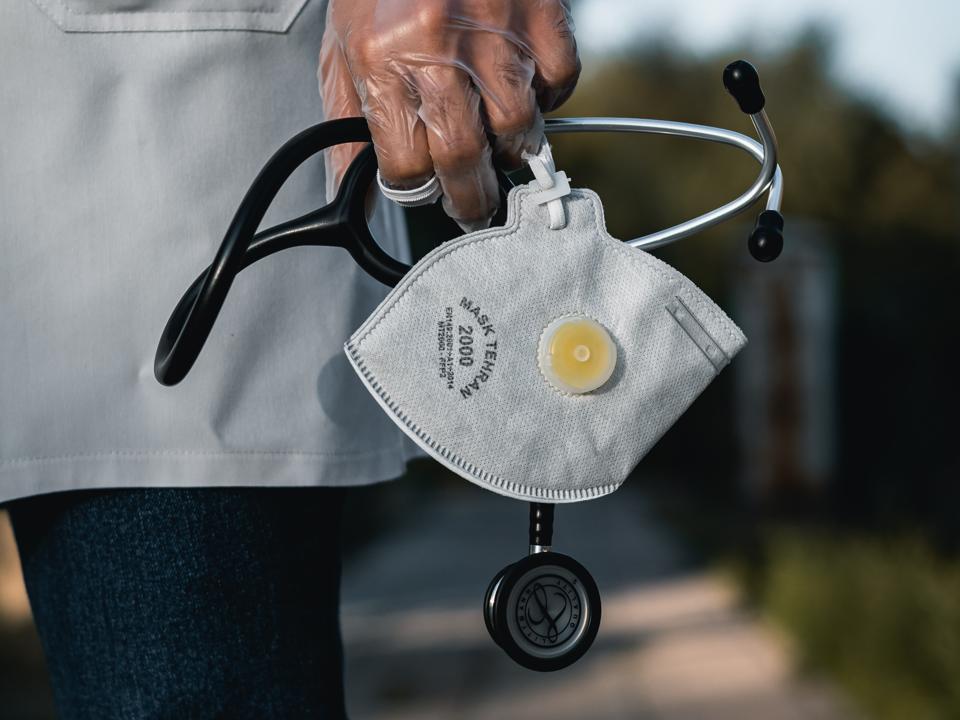Dayton-area startup launching online apparel store - Dayton Business Journal |
- Dayton-area startup launching online apparel store - Dayton Business Journal
- COVID-19 Crisis Triggering Huge Losses in Textile, Apparel Sector - WWD
- UNI textiles & apparel program hosts virtual show - Waterloo Cedar Falls Courier
- Why Are Apparel And Automotive Companies Making Face Masks? - Forbes
| Dayton-area startup launching online apparel store - Dayton Business Journal Posted: 21 Apr 2020 01:43 PM PDT [unable to retrieve full-text content]Dayton-area startup launching online apparel store Dayton Business Journal |
| COVID-19 Crisis Triggering Huge Losses in Textile, Apparel Sector - WWD Posted: 21 Apr 2020 02:11 PM PDT GENEVA — The coronavirus is having a devastating effect on workers and employers in all sectors and triggering massive losses in output and jobs, with textiles and apparel particularly hard-hit, the International Labor Organization said Tuesday. In the textiles and apparel industries, the ILO said in an impact assessment that "quarantine measures have suppressed consumer demand. In Bangladesh, order cancellations have led to lost revenue of about $3 billion, affecting some 2.17 million workers." The agency said in Bangladesh it is estimated that "less than 20 percent of firms are able to continue paying staff wages for more than 30 days under these circumstances…" Similarly, in Vietnam, another major apparel exporting nation, the ILO estimated 440,000 to 880,000 workers "could face reduced hours or unemployment." Alette van Leur, ILO director for sectoral policies, said ILO member states "are taking unprecedented measures to protect frontline workers and to lessen the impact on businesses, livelihoods and the most vulnerable…" In particular, ILO economists note factory and retail store closures around the planet "have threatened the viability of enterprises…" Indeed, Casper Edmonds, ILO director for manufacturing, told WWD that in a recent virtual meeting with Guy Ryder, ILO director-general, representatives from the International Apparel Federation, an employers umbrella grouping, "called for solidarity across the global supply chain." IAF, which represents apparel industries in about 60 countries, in a statement to Ryder said "apparel manufacturers immediately feel the economic pain of canceled orders and no new orders coming in." The ILO analysis notes that some major buyers have committed to "paying for all orders already in production or completed. In Bangladesh, for example, H&M, Inditex, Kiabi, (with deferred payments) and Target and VF have committed to payment." But it added, "many other major buyers have still not done so." The ILO said it has urged governments to extend social protection to all and is advising on measures "to promote employment retention, short-time work, paid leave and other subsidies." Some apparel-producing nations, however, have implemented a series of measures to support the apparel industry, it said. The government in Myanmar has unveiled an initial $70 million stimulus package targeting the garment and tourism sectors, while in Sri Lanka in areas where factories have temporarily shut down under government orders, workers are entitled to paid leave. Meanwhile, in Cambodia, the ILO said the government has issued instructions that "suspended workers can receive 40 percent of their salary from their employer and an additional 20 percent from the government." Moreover, Cambodia, it said, has also "suspended National Social Security Fund contributions for garment and textile factories affected by a shortage of raw materials due to COVID-19." Finally, the ILO said as part of the ILO-International Finance Corporation Better Work Program, a task force was created in Bangladesh with the Bangladesh Garment Manufacturers and Exporters Association, interested buyers and U.N. entities to support the production of level one personal protective equipment in order to address the urgent needs and build capacity for future investments in higher-level PPE production. |
| UNI textiles & apparel program hosts virtual show - Waterloo Cedar Falls Courier Posted: 21 Apr 2020 10:30 AM PDT  CEDAR FALLS – The University of Northern Iowa textiles and apparel program will host a virtual fashion show at 7 p.m. Saturday via the @UNICatwalk Facebook, Instagram and Twitter accounts. The event, which replaces the program's 28th annual live fashion show (CATWALK28), will showcase student designer collections through a video compilation. When faced with the option to cancel, due to the university's response to COVID-19, CATWALK28 executive director Lillian Teater rallied faculty and fellow students to find an alternative platform. With the majority of pieces already designed, the thought of not showcasing their hard work was too much for the students to bear. Particularly for seniors, who were already facing the harsh reality of a canceled spring commencement ceremony. So, the team put together a detailed guide on how students could video their collections and design process from the safety of home. Marketing and interactive digital studies major Isaac Hackman will then help combine the videos into one cohesive virtual show, shared through social media on the same day and time as the original CATWALK28. "I am so excited to see this come together and show off all the awesome talent we have in this program, regardless of the circumstances," said Teater, a senior textiles and apparel major who has already accepted a merchandise analyst position with Kohl's Corporate Buying Office upon graduation. Teater additionally helped get the program's collaborative "Uprising Magazine" completed for its first fully-digital release, which launched online April 17 at jointheuprisingmagazine.com. "It's our mission to still bring creative expression and something for this campus community to be proud of," said Teater. "Especially in a time like this." For more information on the virtual fashion show, visit csbs.uni.edu/catwalk or contact Lillian Teater, CATWALK28 executive director and Uprising Magazine co-editor-in-chief, at teaterl@uni.edu. Sign up now to get the most recent coronavirus headlines and other important local and national news sent to your email inbox daily. |
| Why Are Apparel And Automotive Companies Making Face Masks? - Forbes Posted: 21 Apr 2020 03:12 AM PDT  Photo by Ashkan Forouzani The economic fallout of COVID-19 disrupted the medical supply chain causing apparel and automotive companies to pick up the slack in producing critical medical items. Imports of respiratory protection equipment, including face masks and powered air-purifying respirator systems (PAPRs) from China, were already entangled in the trade war between Beijing and Washington, raising prices. Now rising-market demand linked to the pandemic has led to nationwide medical supply shortages. This crisis is an opportunity for business leaders to view the disruption of production and supply lines as an incentive to add more flexibility into operations and perhaps even exit a recovery period in a stronger position. According to business analysts, market share concentration of manufacturers and wholesalers of respiratory protection equipment has increased during the last three years as a result of offshoring and consolidation. Honeywell, 3M and MSA Safety earn the bulk of the sector revenues. China also supplies a significant portion of face masks and PAPRs. Additionally, the medical supply chain is particularly fragile and susceptible to interruptions to the flow of raw materials such as fabric and metal strips. Other obstacles include closures of container terminals, where traffic at China's top eight ports has plummeted recently, impacting overseas orders, says the South China Morning Post. Earlier this month, President Trump signed the Defense Production Act as a response to looming medical supply shortages. The move aimed to ensure that companies will meet the demand for needed supplies and resources and highlights why effective supply management is crucial. Companies like 3M have answered the call with the Minnesota manufacturing giant announcing plans to make more than a billion masks by the end of the year and doubling its production capacity to 2 billion respirators in the next 12 months. Yet, the hospitals and other critical care facilities are still experiencing shortages. As the number of confirmed cases of COVID-19 in the U.S. surge, apparel and automotive companies are repurposing their facilities to make more respiratory protection equipment to meet growing demand. Because market share in the respiratory protection equipment market is concentrated among three manufacturing companies, 3M, Honeywell, and MSA Safety, this limits the pool of available suppliers and manufacturers. Offshoring production to China to reduce operational costs has also weakened the supply chain by making disruptions easier to occur. By contrast, the apparel sector is less concentrated, which allows it to avoid bottlenecks better. The global apparel manufacturing industry has a low market share concentration of less than 2% and an extensive network of domestic wholesalers. And though automotive manufacturers share similarities in market share concentration with the medical sector, the automotive industry favors lean inventories and operations, which allows for flexible production. For example, GM was able to convert their Warren, Michigan facility to produce masks in less than seven days. GM's quick pivot includes working with its network of suppliers that typically provide sound-deadening insulation found in vehicle doors, headliners and trunks. These vendors have since quickly altered production to supply instead the three layers of fabric needed for masks. Another factor to consider is consumer spending. A recent Gartner survey of CFOs reveals that slightly more than half of the respondents are preparing for up to 30% decline in revenue this year due to COVID-19. "Most CFOs have told us they are using the most severe downside scenarios to inform their decisions right now. This is leading CFOs to consider drastic cost management actions across April and May," said Alexander Bant, an author of the Gartner survey, in a statement. This is significant because both apparel and automotive industries are driven by per capita disposable income, whereas the medical supply industry isn't. While consumer spending is expected to decline, companies within these two industries can still remain financially and operationally viable by switching their production lines to supply hospitals and critical care facilities. These surges in demand for face masks and related respiratory protection equipment will allow apparel and automotive companies to stay afloat. Full coverage and live updates on the Coronavirus |
| You are subscribed to email updates from "apparel" - Google News. To stop receiving these emails, you may unsubscribe now. | Email delivery powered by Google |
| Google, 1600 Amphitheatre Parkway, Mountain View, CA 94043, United States | |






0 Yorumlar